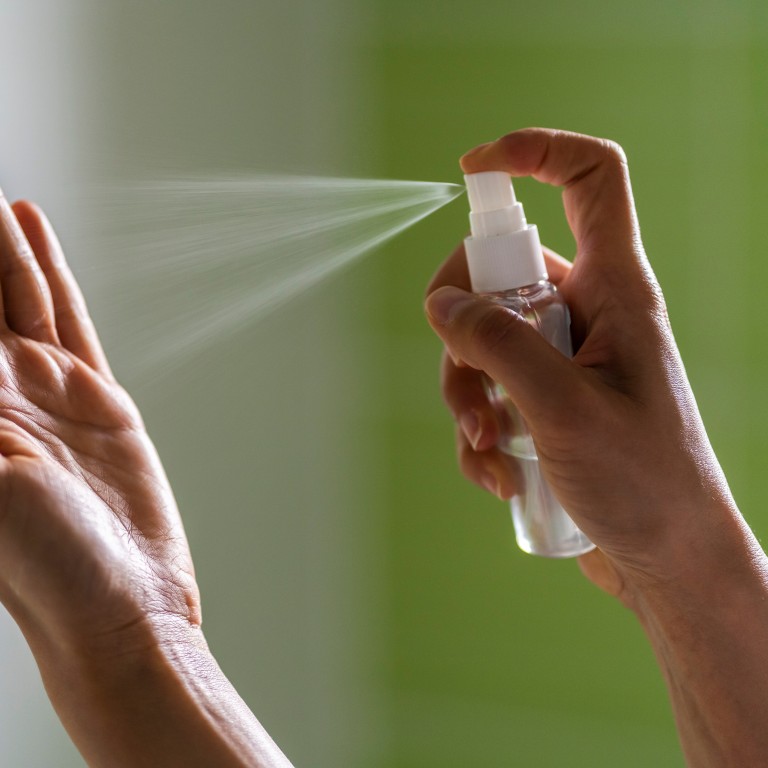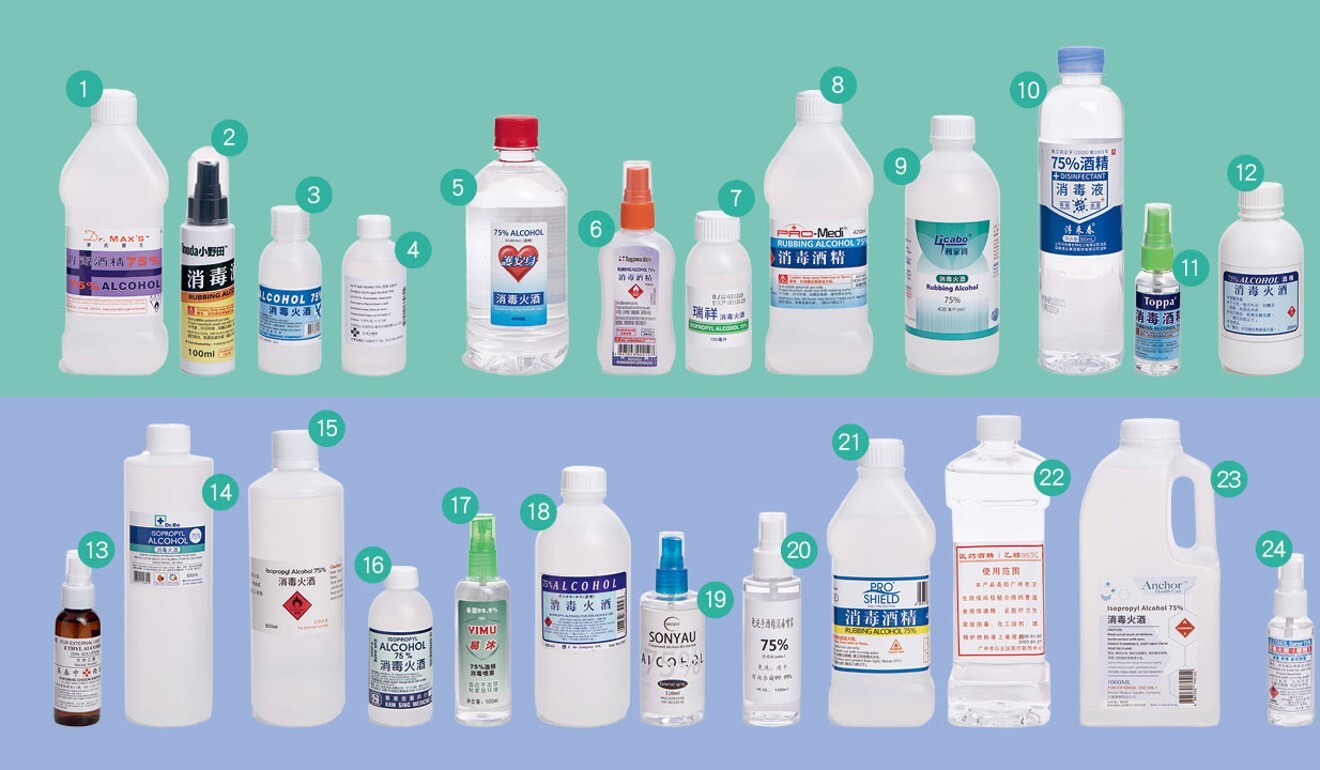
Coronavirus: Hong Kong watchdog urges wariness over alcohol-based disinfectants as traces of methanol found
- Micro levels of the toxic substance were found in six of 24 locally available alcohol-based disinfectants tested by the Consumer Council
- While the tests showed levels that fell within WHO safety recommendations, the risk of chronic poisoning remains, research committee chair says
Consumers should be extra cautious when purchasing alcohol-based disinfectants amid the Covid-19 pandemic, Hong Kong’s consumer watchdog warned on Wednesday, revealing new tests that showed a toxic substance found in some brands sold locally.
Over March 11 to 13, the Consumer Council purchased 24 alcohol disinfectants from drug stores in six districts including Tsuen Wan, Mong Kok, North Point, Sha Tin, Kwan Tung and Causeway Bay.
During lab tests commissioned by the council, micro amounts of toxic methanol were detected in six samples, ranging from 0.007 per cent to 0.0336 per cent, with the highest amount – about 0.09 millilitre of methanol – found in a 450ml bottle of rubbing alcohol produced by Extra Care.
Professor Nora Tam Fung-yee, chairwoman of the council's research and testing committee, said at a Wednesday morning press conference that while the highest amount of methanol found in the tests fell within the World Health Organisation’s safety level recommendations, consumers could still face chronic poisoning.

Methanol could enter the body through the skin, resulting in potential eye damage or issues developing in the central nervous system, while the intake of a large amount of methanol could lead to loss of eyesight and kidney failure eventually, Tam said.
WHO recommends that a 70kg adult should not inhale or ingest more than 35 milligrams of methanol a day, otherwise it will induce health problems or even chronic poisoning. According to Tam, one would need to inhale or ingest more than 104 millilitres of alcohol from the sample with the highest methanol concentration to exceed those safety recommendations.
“People use disinfecting alcohol to wash wounds, as DIY hand sanitisers and to disinfect their homes, so the amount of daily methanol intake could be high,” Tam said. “Alcohol could also get into the blood when it’s used for disinfecting wounds, so we cannot take it lightly. ”
Tam said alcohol products containing hazardous methanol levels violate the city’s Consumer Goods Safety Ordinance and the cases had been referred to the Customs Department for follow-up.
The council also found 75 per cent of the samples had a lower actual alcohol concentration than claimed, while 16 of those tested had a net volume lower than labelled, with the worst offender being off 21 per cent.
According to WHO guidelines, the concentration rate of alcohol used for disinfection should range from 60 to 80 per cent to serve its purpose. None were found to have a concentration lower than 60 per cent.
“If you suspect the quality of the alcohol you just purchased, we would advise you to be careful. Stop using that product and get another one from a reliable store,” said Gilly Wong, chief executive of the Consumer Council. She also warned residents not to burn the alcohol to determine if it contains methanol, ethanol or isopropyl alcohol as it could lead to accidents.
The council received 76 complaints over alcohol production in the first three months of the year, up from the fewer than 10 typically received for an entire year.
Wong said they have received 769 complaints related to disinfectants and face masks from January to March as the city copes with the Covid-19 pandemic, with 539 complaints concerning online shopping and the rest related to retail sales.
Most, however, were unrelated to health concerns.
“The complaints are mainly related to late delivery and refund disputes,” Wong said, noting many people paid to order masks immediately after finding them online, but failed to check whether the platforms or shops were credible.
She urged consumers to verify the authenticity of online shops and individual traders as well as the product quality before making payment.
Among the some 700 complaints, 84 per cent were related to face masks. The cases, which involved HK$1.44 million, included disputes over refunds, late delivery or suspected scams.
